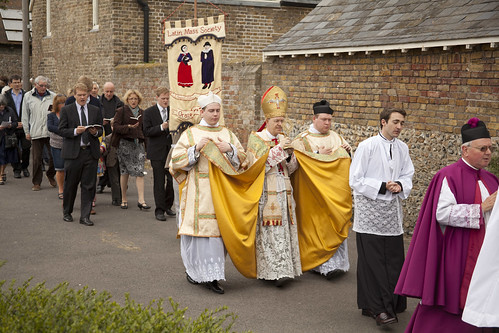 |
| Coming soon to the Vatican? |
While Francis is preaching simplicity of life and evangelical poverty, both by word and example, his previous Cardinal Secretary of State is constructing his own 'Trump Towers' right next door to the hostel where the Pope lives.
By the year 800 the Pope and the Holy Roman emperor were so allied with one another that Charlemagne came to Rome to be crowned by him in St Peter's. But it was Charlemagne who was calling the shots. By then what Judith Herrin calls the "purely Latin and clerical culture of the West" [ref], of which Gregory VII had been the harbinger, was so deeply established that it had overthrown the legacy of the Upper Room at Pentecost.
If I insulted Cardinals like that I'd expect to come in from some pretty shart criticism. I'm not a particular partizan of Cardinal Bertone, but there are ways of making one's point. Loftus is not giving us a good example of how to obey Canon 212 sec. 3, which tells us that the laity have
"the right and even at times the duty to manifest to the sacred pastors their opinion on matters which pertain to the good of the Church and to make their opinion known to the rest of the Christian faithful, without prejudice to the integrity of faith and morals, with reverence toward their pastors, and attentive to common advantage and the dignity of persons."
But then again if I were Cardinal Bertone I wouldn't be too worried. Loftus reveals himself to be a man who thinks that Pope Gregory VII (1073-1085) was the harbinger of a situation well-established in the year 800. How did he manage that, Basil? With a time-machine? Or does he not know what 'harbinger' means?
Oh and it's pretty nonsensical to call Charlemagne a Holy Roman Emperor (that formula came into use many centuries later), but utterly nonsensical to call him that before his coronation.
Oh and - but never mind. Let's just say that Loftus' grip on history is as impressive as his grip on theology.
Just for fun, here's some pomp, in honour of a friend of another Pope Gregory, the Great, namely St Augustine of Canterbury.
 |
| Bishop Schneider at St Augustine's, Ramsgate |
"Loftus reveals himself to be a man who thinks that Pope Gregory VII (1073-1085) was the harbinger of a situation well-established in the year 800."
ReplyDeletePerhaps he meant Gregory I (d. 604). Or Gregory Rasputin. With Msgr Loftus it is, alas, sometimes hard to tell what he means - beyond the fact that he's now making boilerplate Protestant attacks on the Catholic Church's history and claims.
I suppose that's possible. But I had thought that Loftus had in mind Gregory VII's assertion of Papal prerogatives. It's not clear that Gregory the Great would make his point.
ReplyDeleteJoking aside, my guess is that where Msgr Loftus erred was not in which Pope he was talking about, but in which descriptor he meant to use to describe Gregory VII. It would make some sense if the sentence were fixed to replace "harbinger" like so: "By then what Judith Herrin calls the "purely Latin and clerical culture of the West" [ref], of which Gregory VII was the consummation..." Or something like that. Of course, even so, Innocent III (generally seen as the apex of the medieval Church) would probably be a better embodiment for that sort of thing than Gregory VII.
ReplyDeletePoor Hildebrand. Tossed on the trash heap along with pretty much all Church history between 312 and 1962 as a rude, bigoted embarrassment by enlightened folk like Msgr Loftus. It must be a strange experience being a Catholic who is constantly embarrassed, apologetic and even hostile about most of what it has ever meant to be Catholic.
Yes I'd expect the target to be Innocent III; Loftus attacked Innocent III in a previous column.
DeleteIndeed, poor Hildebrand. If any Pope has suffered for sticking to the principles of justice and charity it was him. 'I loved justice and hated iniquity, and therefore I die in exile' - his last words, I was told as school.